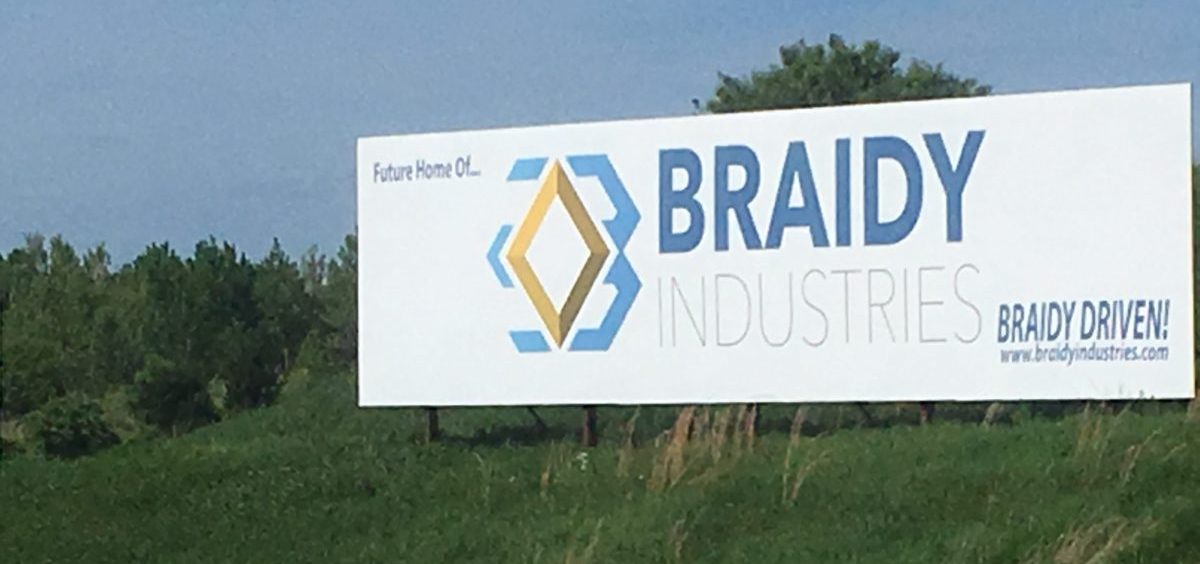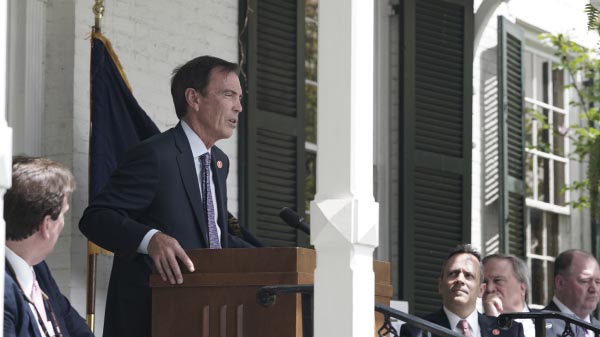News

CEO Ousted at Kentucky Aluminum Company Amid Questions About Controversial Funding
By: Sydney Boles | Ohio Valley ReSource
Posted on:
A controversial economic development project in Ashland, Kentucky, hit a snag last week as aluminum company Braidy Industries ousted CEO and board chairman Craig Bouchard. In a statement, Braidy Industries’ interim CEO said he appreciated Bouchard’s hard work for the company. Bouchard says the firing was improper and is refusing to step down.
The dueling statements from Braidy and Bouchard come amid continuing questions about the company’s effort to cobble together about $2 billion in financing from a mix of taxpayer money and private investment from both foreign and domestic sources.
Bouchard’s financing strategies have been a frequent source of controversy. The aluminum company received the strong support of former Kentucky Gov. Matt Bevin, whose administration took the unusual step of investing $15 million in taxpayer dollars into the development of a new aluminum mill. Braidy Industries also benefited from $4 million from the Abandoned Mine Lands fund, which Kentucky Rep. Hal Rogers and Sen. Mitch McConnell announced together in 2018.

But Braidy’s most controversial investment came from Rusal, a Russian aluminum company that had previously been under federal sanctions due to the company’s connections to Russian oligarch Oleg Deripaska. The U.S. lifted those sanctions shortly before Rusal pledged $200 million to the Braidy development. Rusal now owns a 40 percent share of the mill, as well as a 10-year supply contract with the Ashland facility.
The move to lift sanctions led Democratic leaders in the U.S. House and Senate in 2019 to urge the Treasury Department to investigate Braidy Industries last summer over concerns that Rusal’s investment in the Kentucky mill could lead to the “erosion of technological superiority from foreign direct investment.”
The Treasury Department has not confirmed or denied whether such an investigation has been opened. In a response to questions from Democratic Sen. Ron Wyden of Oregon, Bouchard denied any impropriety in his company’s relationship with Rusal.
An Unfolding Situation
The company announcement of Bouchard’s removal from leadership set off an unusual and highly public spat.
Bouchard said he was unaware of the board’s decision until stepping off an international flight early Saturday morning. “I believe the sudden and unexplained action taken by the Board of Directors of Braidy Industries to attempt to remove me as CEO is without basis and, if allowed to stand, threatens significant damage to Braidy Industries, its stockholders and the Ashland community,” Bouchard wrote. “The genesis of the disagreement is my pursuit of foreign strategic partners representing patient capital that will stay with us for generations.”
In a Facebook post, Bouchard attempted to cast doubt on the board’s ability to remove him by citing voting documents filed with the Governor’s office, but company bylaws seem to permit the board to remove the CEO with or without cause with a 70 percent majority vote by the board.
A spokesperson for the company said its plans for the billion-dollar aluminum mill are unchanged, although it reportedly still lacks the funding to begin construction. The project is slated to cover 1.4 million square feet in Greenup County and will be a more environmentally friendly aluminum rolling mill than others in the U.S. Braidy Industries has claimed the project will bring in 1,500 temporary construction jobs and 650 permanent advanced manufacturing positions. The rolling mill would be the company’s first project.
Board member Charles Price, a Kentucky native and longtime entrepreneur in the construction and coal ash industries, has been named board chair, and Tom Modrowski has been named CEO. As of Monday morning, a spokesperson for Braidy Industries said the board stands by its statement that Bouchard has stepped down. Bouchard is expected to remain a member-at-large of the board.
Correction: An earlier version of this article misstated the size of the Braidy Atlas project. It is expected to cover 1.4 million square feet, not acres.

